Page 8 • (806 results in 0.043 seconds)
-
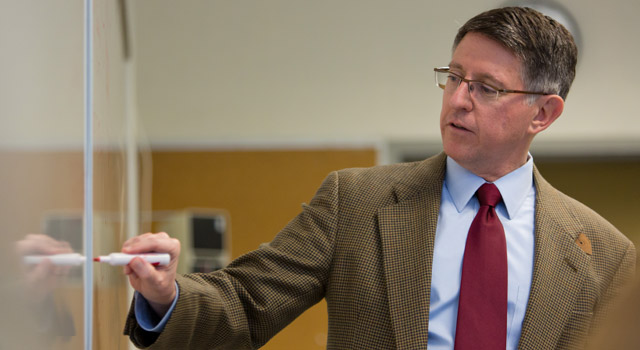
PLU President Tom Krise teaches a course on Caribbean literature during the spring semester. (Photos by John Froschauer) President Krise goes to the front of the class…to teach By Katie Scaff ’13 When students walked into Admin 214 at the beginning of spring semester for…
May 7, 2013 PLU President Tom Krise teaches a course on Caribbean literature during the spring semester. (Photos by John Froschauer) President Krise goes to the front of the class…to teach By Katie Scaff ’13 When students walked into Admin 214 at the beginning of spring semester for English 216: African and Caribbean short stories, some were a little surprised to find the university president, Tom Krise, standing in the front of the room with Professor Barbara Temple-Thurston. “There were some
-
Marissa Meyer ’04 is the author of The New York Times best-selling series The Lunar Chronicles . She earned her Bachelor’s degree in Creative Writing and Children’s Literature at PLU and went on to receive her MFA in Publishing from Pace University. Meyer is one of…
Marissa Meyer ’04, Best-Selling Author Posted by: Zach Powers / January 4, 2016 January 4, 2016 By Zach Powers '10PLU Marketing & CommunicationsMarissa Meyer ’04 is the author of The New York Times best-selling series The Lunar Chronicles. She earned her Bachelor’s degree in Creative Writing and Children’s Literature at PLU and went on to receive her MFA in Publishing from Pace University. Meyer is one of 11 notable alumni currently featured in a billboard campaign that asks “what can you do
-
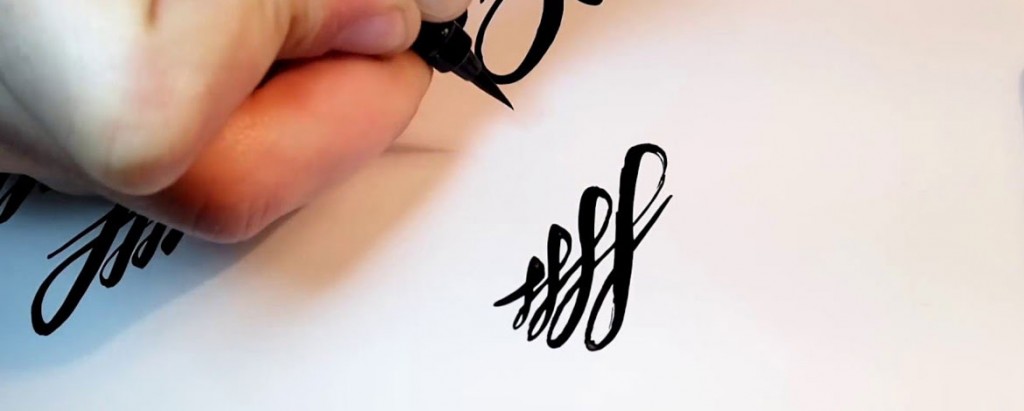
TACOMA, WASH. (Nov. 8, 2016)- Gabri Joy Kirkendall ’09 studied political science and French languages and literature at Pacific Lutheran University. Now, she’s a published author and artist. Below is an edited discussion about her vocational journey and her experience creating hand-lettering books. Question: How…
Q&A: Gabri Joy Kirkendall ’09 discusses her vocational journey that led to success as a hand-lettering artist, author Posted by: Kari Plog / November 8, 2016 November 8, 2016 By Mandi LeCompteContributing writerTACOMA, WASH. (Nov. 8, 2016)- Gabri Joy Kirkendall ’09 studied political science and French languages and literature at Pacific Lutheran University. Now, she's a published author and artist. Below is an edited discussion about her vocational journey and her experience creating hand
-
Angela Tennant ’12 Degree: Bachelors of Fine Art – Theatre, Acting Directing with an English Literature minor Organizations: Alpha Psi Omega (Member and Historian), Vpstart Crow (President), CLAY CROWS Improv (Member), SOAC Advisory Board Where are you now? “I currently reside in New York City. Upon graduation…
Alumni Check-in: Angela Tennant ’12 Posted by: Mandi LeCompte / March 20, 2013 March 20, 2013 Angela Tennant ’12 Degree: Bachelors of Fine Art – Theatre, Acting Directing with an English Literature minor Organizations: Alpha Psi Omega (Member and Historian), Vpstart Crow (President), CLAY CROWS Improv (Member), SOAC Advisory Board Where are you now? “I currently reside in New York City. Upon graduation at PLU, I was accepted into the MFA Acting program at The New School for Drama, and I’m in
-
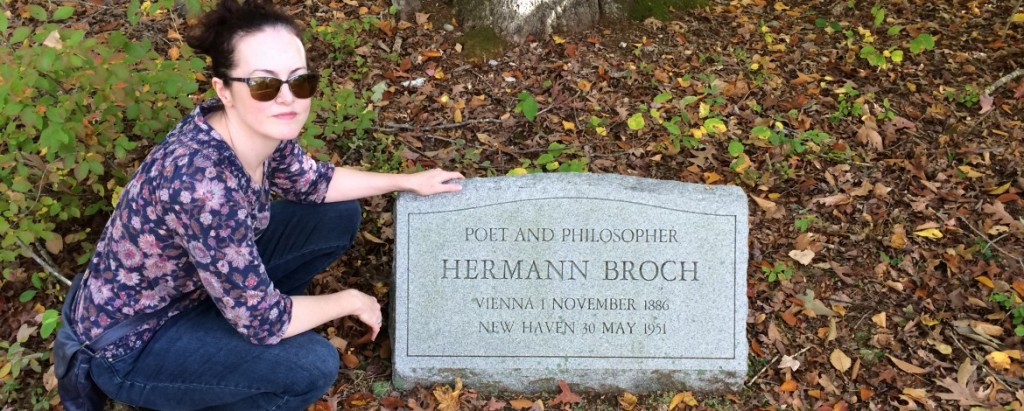
Occasionally, we are fortunate enough to find things that are more exciting than what we are searching for. This is certainly true for Dr. Jen Jenkins, Associate Professor of German in the Languages and Literature Department at Pacific Lutheran University. Dr. Jenkins spent the 2016-2017…
Rediscovery: Dr. Jenkins and the Texts of Hermann Broch Posted by: Matthew / December 4, 2017 Image: Professor Jen Jenkins at the grave of Herman Broch in Connecticut. December 4, 2017 By Clayton Regehr '18PLU HumanitiesOccasionally, we are fortunate enough to find things that are more exciting than what we are searching for. This is certainly true for Dr. Jen Jenkins, Associate Professor of German in the Languages and Literature Department at Pacific Lutheran University.Dr. Jenkins spent the
-
2022 - The Diversity Center and the Center for Gender Equity join to become the Center for Diversity, Justice, and Sustainability to further align the centers' values and shared intersectional work.
ways. 1970s PLU sees an influx of Black and Non-Traditional Students who eventually form the University’s first Black Student Union. 1980s Student Peer Advisors hired for the first time, one for each major ethnic minority represented on campus (Black, Asian-Pacific Islander, Latino, Native American). 1988 MICA, the Multi-ethnic-International-Commuter-Adult student center is formed. Headed by Christina Del Rosario, the Center houses various resources on campus related to diversity, including
-
Finding our true selves and building meaningful, healthy relationships in life is key to our health and wellbeing.
been and what is possible. I enjoy working with individuals, couples, and families from all walks of life that see me as a good fit for their personal needs. Pronouns: She/Her Ethnic Identity: White Sexual Orientation: Heterosexual Gender Identity: Female, Cis gender
-
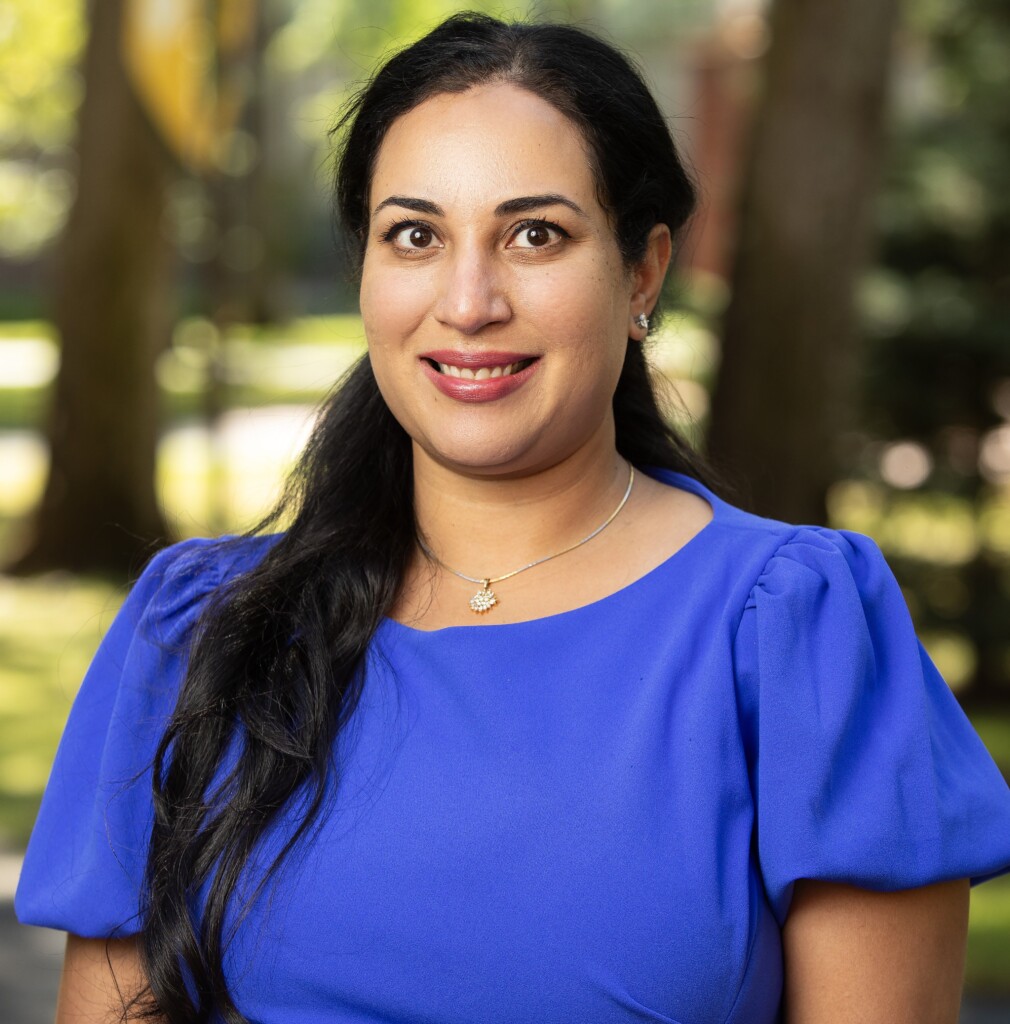
Visiting Assistant Professor of English | Department of English | dks@plu.edu | 253-535-7808
Devina Sindhu Visiting Assistant Professor of English she/her/hers Phone: 253-535-7808 Email: dks@plu.edu Office Location: Hauge Administration Building - 222-D Professional Education Ph.D., Comparative Literature, University of Oregon, 2024 M.A., English and Comparative Literature, San Diego State University, 2012 B.A., English, University of California, Irvine, 2007 Areas of Emphasis or Expertise Decoloniality Post-1945 Global Anglophone Literature Writing by and about Women Literature and
-
Majors should plan their course of study in consultation with their departmental advisor. Major in Political Science 36 semester hours Required Courses 16 semester hours POLS 151, POLS 251, POLS 301,
government; party financing; interest groups and political action committees; and voting behavior. Intensive writing course. Prerequisite: POLS 251. (4) POLS 365 : Race and Ethnic Politics - ES, GE An interdisciplinary examination of the way racial and ethnic conflict shapes and structures American political, social, and economic life focused on the best path toward democratic equality. Discussions center on the literature that examines the integration of disenfranchised ethno-racial groups into in U.S
-
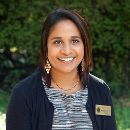
Chair of Global and Cultural Studies | Global & Cultural Studies | shah@plu.edu | 253-535-7687 | Dr.
International Development International Relations IPE Neoliberalism Urban Studies Identity Ethnic Conflict Citizenship West Africa South Asia Biography Dr. Shah joined the Department of Political Science at PLU in 2012, and Global Studies and Anthropology in 2014. She teaches classes focused on Global Development, International Relations, Africa, South Asia, and Urban Studies. Dr. Shah conducts research in Nigeria and India, where she examines the effects of neoliberal urban development policies on
Area of Emphasis/Expertise
Do you have any feedback for us? If so, feel free to use our Feedback Form.


